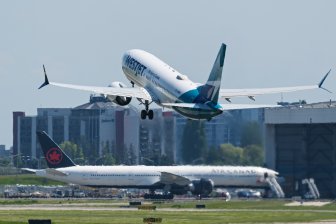Some environmentally minded people have expressed concerns about plans for aerial spraying of bacterial pesticide onto a portion of West Kelowna, B.C., but their attempt to tell local politicians didn’t go as planned.

The local Citizens Safety Association was shut down at West Kelowna council last week when they went to air their concerns about plans to spray an area of 52 hectares, with a 165-hectare buffer zone, with Foray 48B.
They were told it wasn’t the place for such a discussion. Council members pointed out that the decision to spray the area where there’s a reported outbreak is not in their hands, it’s a provincial matter.
West Kelowna Mayor Gord Milsom was the first to point out the issue was outside the municipality’s purview, and the group’s request to address council violated procedure guidelines. Later, Coun. Rick de Jong had the matter put the bed with that argument.
Coun. Stephen Johnston was the sole politician who wanted to hear about the issue. He noted that it fell outside their jurisdiction but said he didn’t see the harm in learning more.
“Information is information,” Johnson said.
While the conversation was scuttled, the group is still intent on sharing the news.
Lloyd Manchester, president of the association, said that he thinks the spraying is ludicrous and residents should be able to weigh in.
“We know there are alternatives,” Manchester said.
“We know that there could be community involvement through using alternatives.”
Those, according to him, include getting people to identify egg masses and more targeted spraying.
According to a package of information Manchester distributed, the health concerns related to the spray involve respiratory, vision, cardiac, neurological, gastrointestinal and skin issues.
These views are not shared by the province.
Foray 48B is a biological insecticide that is widely used in B.C. and is registered with the Organic Materials Review Institute. The active ingredient in Foray 48B is the bacterium Bacillus thuringiensis var. kurstaki, known as Btk.
On a Ministry of Environment website, it states that Btk is a bacterium harmful only to moth and butterfly caterpillars. It must be applied by spraying and it keeps the sponge moth, once called the gypsy moth, at bay.
Above all else, the province says the spray only affects moth and butterfly larvae and can be used safely around humans and other animals.
“Of course, (people) should keep their windows and doors closed (when spraying happens), and it’ll be done in the very early hours in the (this) week … and I think that most people should know that the ministry has been very careful to make certain your best interest in taking care of,” MLA Ben Stewart said.

The moth is a voracious eater of leaves and reduces the leaf surface available to capture sunlight, which causes a loss in food production.
“Deciduous trees can sometimes produce a second crop of leaves, but after repeated defoliation, trees may die or become so weakened that they are vulnerable to secondary infestations,” the province said in its writeup.
“Evergreens may die after only one defoliation.”




Comments